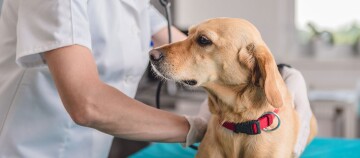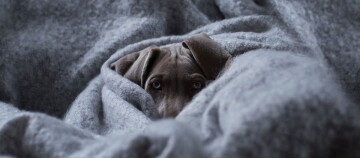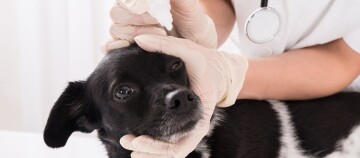Christmas with a Dog – How to Really Enjoy the Christmas Period
07.10.2022 - Reading time: 5 minutes
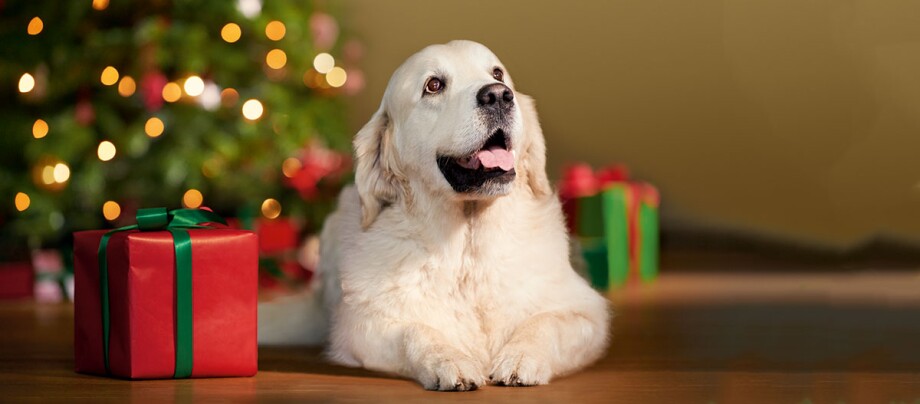
The Christmas period should be a time for rest and relaxation for us all, but the everyday reality looks a little different: there is a string of Christmas parties to attend, presents need to be bought, and everything is thrown off kilter. Our four-legged companions notice this too and have a tendency to be more nervous and unsettled. For dogs, the calm Christmas period can be stressful. Read here how you can make Christmas easier for your dog, allowing your whole family to enjoy this special time.
Preparation: Advent spent with your dog
During the pre-Christmas period, everyday life gets turned upside down to a greater or lesser extent. Everyone knows this: You suddenly find that Christmas is upon you every year and then it is a matter of buying presents, baking cookies, meeting friends and putting the Christmas menu together.
Please spare your dog the stress of shopping and do not take him/her with you when you go on your shopping expedition. Avoid crowded shopping streets and throngs of people at Christmas markets if your animal is with you. Long waits at mulled wine stalls in wet and cold weather will also not be pleasant for your four-legged friend and could cause him to develop a chill. Read more about this in the ”If your dog gets a chill…” guide.
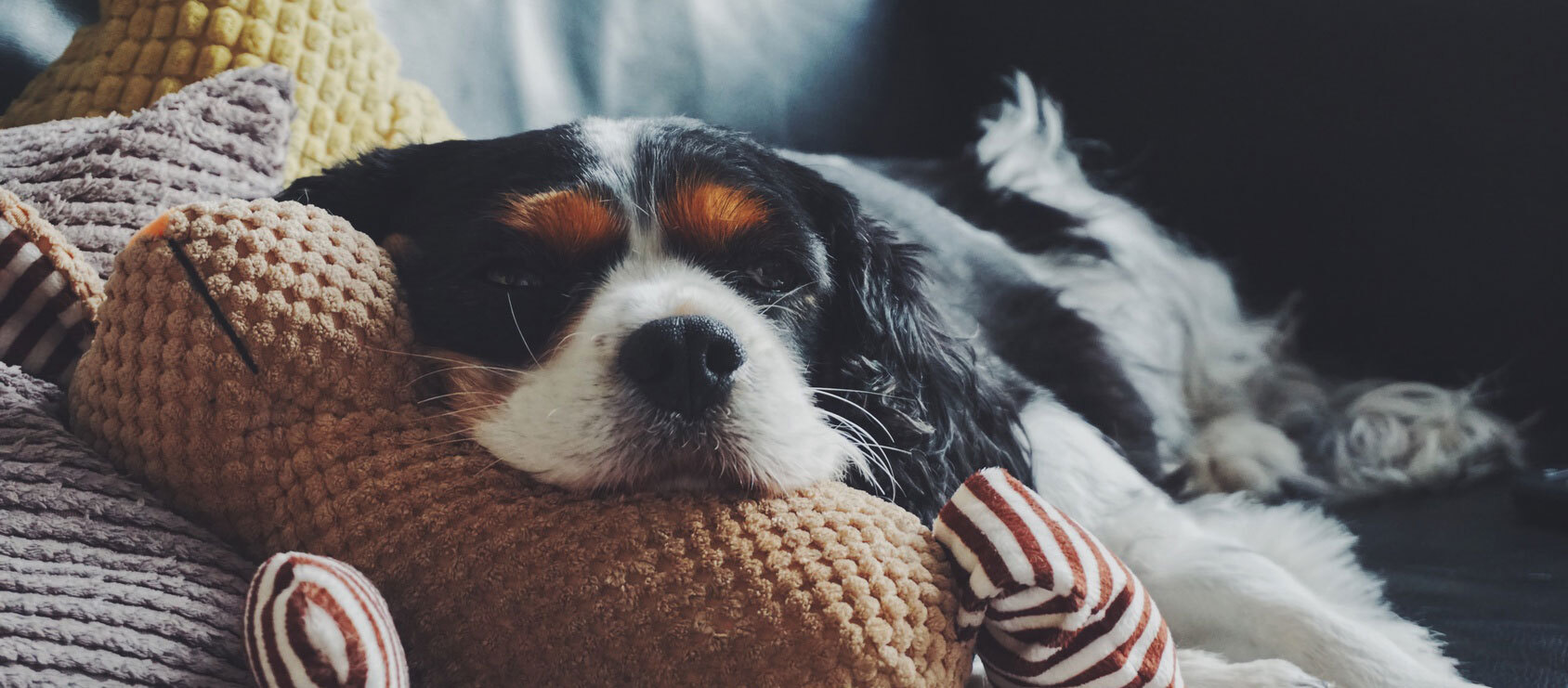
However, there is something which you can share with your four-legged friend during Advent: cookie baking. But be careful: This doesn’t mean that you should let your dog eat sugary cookies. Instead, there are recipes for special dog biscuits which you can bake together with him/her. Offer him/her these biscuits at particular times and as a reward.
What to do if things become really stressful?
What to do if things become really stressful?
Friends often arrive during the Christmas period. This causes your dog’s everyday life to be out of balance. There is always something new to disrupt your usual everyday routine. However, try to provide your dog with a certain amount of security by maintaining the everyday rhythms of life:
- Play with your dog regularly.
- Keep walks to the usual length.
- Create an additional area for the relaxation of your dog in your home, for example by having an extra bed for the dog in the bedroom, where guests are less likely to congregate and where it is calm and peaceful.
- Be careful with Advent wreaths! Burning candles pose a great risk to your dog on days of relaxation. A good alternative is flickering LED candles. If you prefer wax candles, put them somewhere where your dog cannot reach them.
Festivities: Christmas - a time of security
What applies to Advent wreaths also applies to Christmas trees: be careful with actual candles, which have to large extent been replaced with electrical candles rather than traditional candles. It is also necessary to consider decorations and their location carefully in a house where there is dog. It is best to place the tree in a corner in order to reduce the likelihood of it toppling over. The Christmas tree should be a prohibited area for your dog. From the start, accustom your dog to avoiding the tree, not nibbling the tree and not even marking the tree.
You should dispense with tinsel and baubles, particularly in the lower areas of the tree. These can be easy to reach for dogs, particularly puppies. The swallowing of tinsel or other tree decorations can quickly lead to an intestinal blockage in dogs. So be sure to pay more attention to symptoms like vomiting and loss of appetite as well as a lack of bowel movements during the Christmas period.
It is best to make sure that your house is “safe for dogs” over the Christmas period. Don’t leave any wrapping paper lying around and use ornaments made of straw, wood and other natural materials as Christmas tree decorations: This will be safe for your four-legged friends, it will look tasteful and it will also be environmentally friendly.
No-gos at Christmas are:
- Sweets or other treats which we like to eat at Christmas.
- Chocolate: Cocoa is poisonous for dogs. Even small amounts contain the active substance theobromine, which can be fatal for dogs.
- Continuing on the theme of poisonous substances: Poinsettias, which are popular during the Christmas period, are plants which are poisonous for dogs. Above all, make sure that puppies do not nibble them. It is best not to have the plant.
- The festive roast is not suitable for dogs, as it is too highly seasoned, too spicy or too salty.
- Do not leave leftover food or sweets lying around unattended.
Instead, offer your four-legged friends dog biscuits which you have cooked yourself during Advent. There is also no reason why you cannot have a special Christmas menu for dogs, including ingredients which are suitable for dogs.
We also eat more during the cold season and particularly around Christmas. At the end of the day, we burn off more calories in the winter months. It is just the same with dogs. This means that they can be given a bit more food than usual.
Checking your animal’s weight during the winter helps to manage the giving of extra food.
Christmas and winter meals for dogs can, for example, be supplemented with ingredients or they should already contain these ingredients.
The following ingredients or components should be contained:
- Protein for the production of keratin (strengthens the coat)
- Vitamin B
- Fatty acids (particularly salmon oil)
- Zinc
- Biotin
When friends and family visit, they should also abide by applicable “dog rules”, be respectful of your dog’s rest and relaxation areas and make sure that they give him/her only treats which are suitable for dogs.
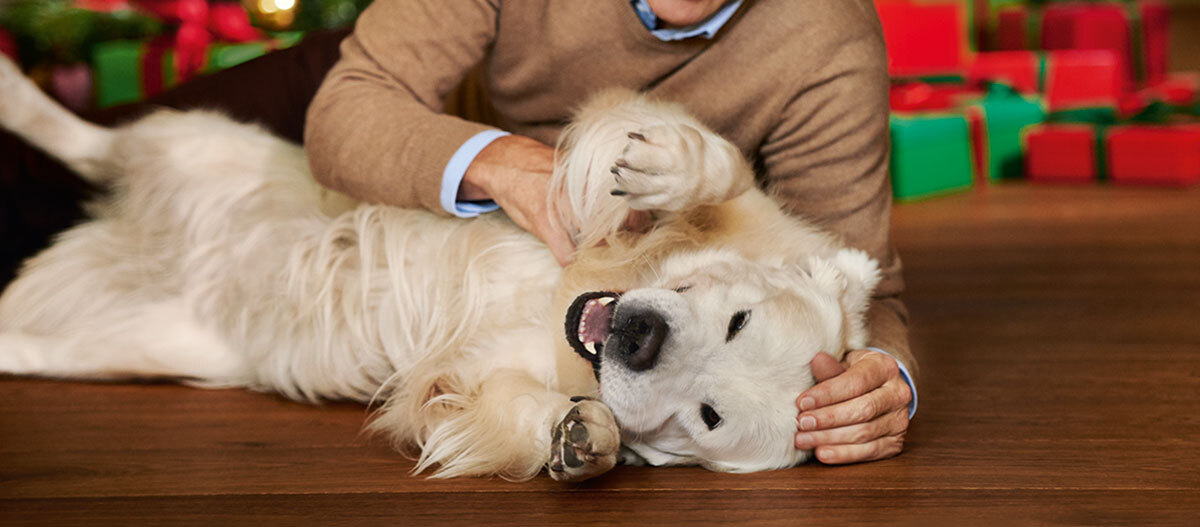
Lastly, another tip for the whole of the Christmas period: Where possible, do not leave your four-legged friend unattended in the Christmas room or kitchen, where he can have access to food without any difficulty.
With a bit of care and a few rules for dogs and humans, the Christmas period can be a lovely time full of joy and relaxation for the whole family, including any animals!
